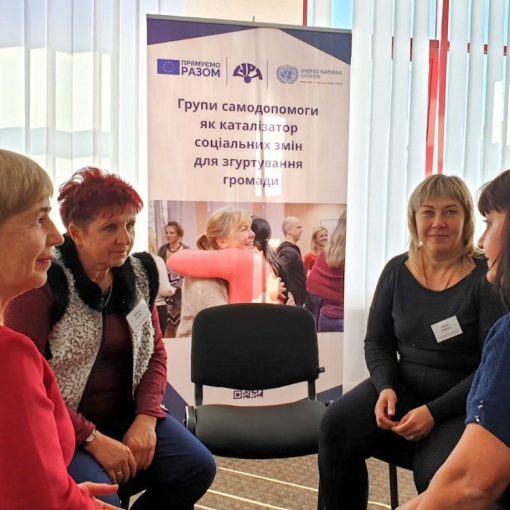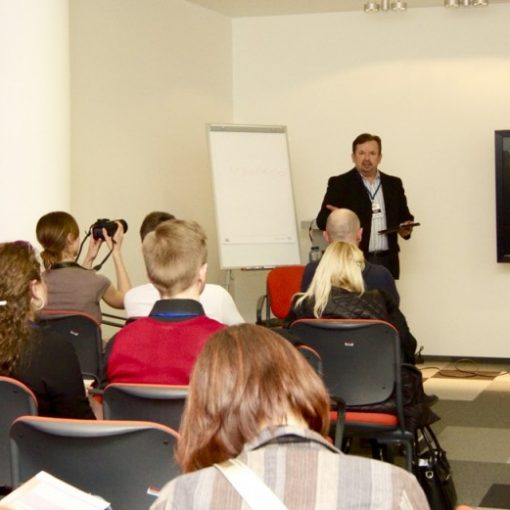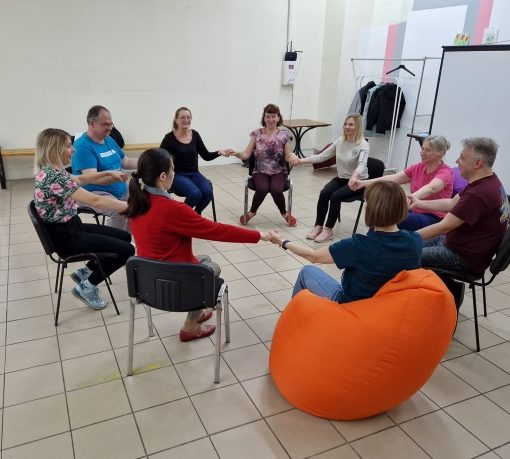For the third time already, GURT Resource Center studied the needs of Ukrainian non-governmental organizations (NGOs) and public libraries in information and communication technologies (ICT). The study, which lasted from 7 to 29 September 2020, involved 1,000 organizations, including 685 NGOs and 315 public libraries.
GENERAL CHARACTERISTICS OF NGOs PARTICIPATED IN THE STUDY
Most non-governmental organizations that joined the survey in 2020 identify community development (39%) and youth work (35%) as their main activities. At the same time, respondents are the least involved in new media development (5%) and granting (3%).
Almost half of the respondents (49%) indicated that their organizations’ annual budget for 2020 does not exceed 100 thousand hryvnias. Nevertheless, 6% of the surveyed NGOs stated that their budget is more than or equal to 5 million hryvnias. Here and further for comparison, we present in the infographic the data collected during similar research in 2016 and 2018.
41% of respondents indicated that their organizations do not use an IT specialist’s services. However, compared to the previous research, the situation has improved – the number of organizations that involve IT professionals in their activities (regularly or as needed) has increased by 23% since 2016.
One-third of respondents indicated the oblast center (33%) as the organization’s location. Instead, the smallest number of NGOs – 13% – are located in rural areas.

NGO DIGITALIZATION LEVEL
The vast majority of organizations surveyed in 2020 (61%) noted that the organization’s ICT only partly meet the organization’s current needs. Simultaneously, 27% indicated that attention to the compliance of existing ICT with the NGO’s current needs is not paid.
Among the main reasons that prevent non-governmental organizations from using available ICT, the vast majority of respondents indicated a lack of financial resources (73%) and a lack of knowledge about ICT innovation (44%). At the same time, 8% of respondents are convinced that they already use all available ICT.
Most of the respondent organizations already use (53%) or plan to use (35%) cloud services. Nevertheless, 7% of respondents still do not know what “cloud services” are – compared to the study conducted in 2016, this figure decreased by 11%.
Organizations that already use cloud services (53% of the total number of respondents) were able to answer an optional question. As a result, 49% of respondents use cloud services for collaborative work with documents. At the same time, cloud e-mail services (40%) and registration forms implemented through the “cloud” (36%) remain popular functions. The least respondents who joined the survey use cloud services to implement CRM (4%) and accounting (7%).
Organizations that joined the study mostly store important and sensitive data on flash drives / external drives (57%) and individual computers (45%). Although 49% of respondents use cloud services for collaborative work with documents, only 35% trust important and sensitive data to the “cloud.”
In 2019-2020, only 21% of respondents carried out technological modernization and software upgrades, which is 5% less than in 2017-2018 (according to the results of the 2018 survey).

LEVEL OF NGO CYBERSECURITY
In 2019-2020, 43% of NGOs that responded to the survey experienced cybersecurity issues. The most pressing problems during this period were incorrect settings (20%), as well as virus attacks and / or malware installation (15%). At the same time, 23% of respondents did not know the answer to this question. Compared to the results of the 2018 survey, it should be noted that the number of organizations that indicated that they had not experienced cybersecurity issues in the last two years has increased from 28% in 2018 to 33% in 2020.
More than half of the respondents (54%) believe that their organization’s information system is secure to a certain extent. Instead, 29% of respondents are sure that it is not protected at all, which is 2% higher than the results of the 2018 survey and 7% higher than the results of the 2016 study.
Only 6% of respondents indicated that their organization had undergone an information security audit. At the same time, 22% hear about such a service for the first time, which is still 6% less than in 2018.
The vast majority of respondents (80%) do not have internal instructions on information security and data handling rules. However, compared with the results of the 2018 study, we can notice minimal positive trends in developing internal instructions of this type.
Despite the lack of knowledge about available ICT, which respondents cited as one of the main reasons hindering technologies’ full use, only 20% of NGOs reported that their representatives attended training on digital security and information technology.

The study was conducted within the project “DT-Accelerator: Increasing the CSO impact through the Adoption of New Technologies,” implemented by the GURT Resource Center and supported by the Democracy Grants Program of The U.S. Embassy to Ukraine.




